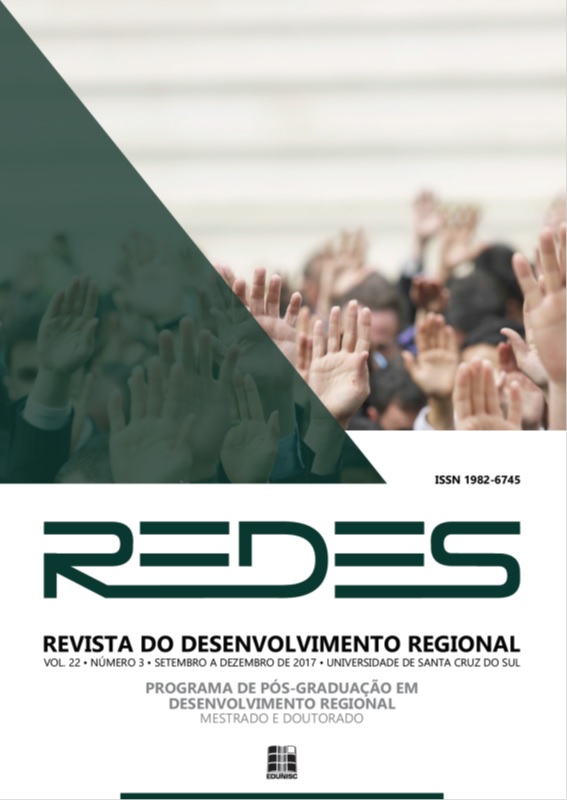Territorial participatory management as part of institutional arrangements inducing effectiveness: a case study of two territorial collegiate
DOI:
https://doi.org/10.17058/redes.v22i3.9946Keywords:
Participatory management. Territorial development. Institutional arrangements. Territorial collegiate.Abstract
Relations between family farmers and government became closer since public policies that stimulated social participation were created in Brazil, such as PRONAF, in 1996, and the Citizenship Territories Program, in 2008. These policies are understood as the result of the struggle for rights (land access, citizenship, economic development, etc) and by advances in the construction and implementation of public policy instruments aimed at empowering local actors, particularly family farmers. Based on the discussion of the effects of different institutional arrangements on the formulation, implementation and outcome of policies, this article focuses on the participation aspect as one of the factors identified as central to guarantee innovation, legitimacy and effectiveness of policy programs and actions. Data came from research conducted in the Territory Mato Grande/RN and in the Territory Portal da Amazônia/MT. The main results of this case study confirm the observed bottlenecks for effective participation: low or non-participation of actors who are not formally organised and/or are from traditional or minority communities; the absence of representatives of municipal governments as interlocutors and potential supporters of local institutional solutions; and the lack of minimum operational conditions to ensure the diversity and regularity of participation.Downloads
Download data is not yet available.
Downloads
Published
2017-09-06
How to Cite
Vaz de Moura, J. T., Moreira, I. de S., & Gomes, S. (2017). Territorial participatory management as part of institutional arrangements inducing effectiveness: a case study of two territorial collegiate. Redes , 22(3), 65-93. https://doi.org/10.17058/redes.v22i3.9946
Issue
Section
Políticas públicas e território: atores, redes e arranjos institucionais



